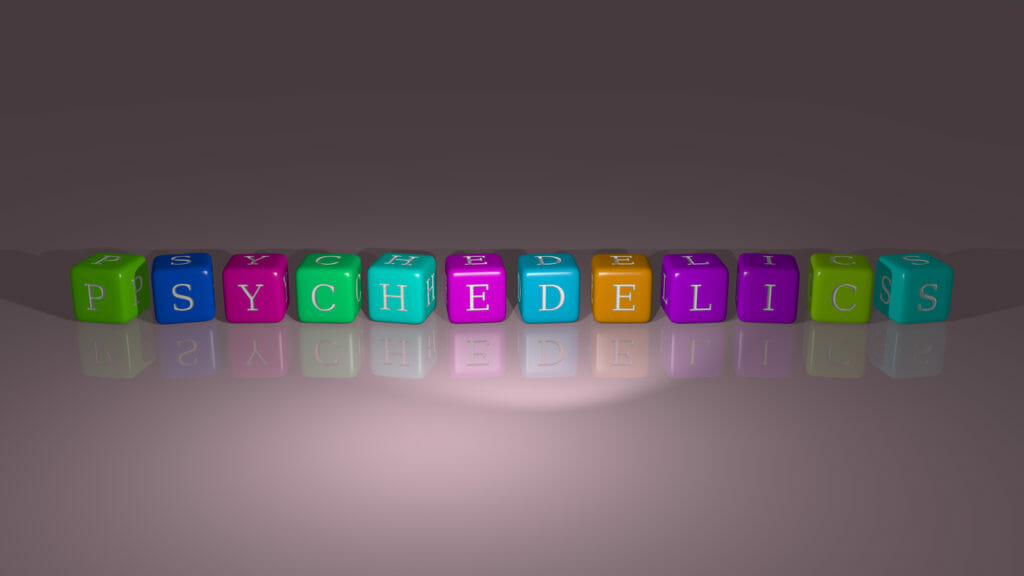
I recently wrote a post outlining the long history of religious exemptions to the federal Controlled Substances Act (CSA). In this post, I’ll provide a brief overview of the hoops that religious organizations have to jump through.
Religious organizations that want to use psychedelics for religious purposes and comply with U.S. law are forced to petition the United States Drug Enforcement Administration (DEA) to do so. The petition process is set out in a set of interim guidelines published by the DEA (Interim Guidelines).
Before I explain what the Interim Guidelines require, it’s important to note that they may not be around for very long. As noted in my last post on this topic, the Arizona Yagé Assembly and North American Association of Visionary Churches sued the federal government over the Interim Guidelines earlier this year, alleging that the Interim Guidelines are illegal for a host of reasons (I analyzed the suspect legality of the Interim Guidelines in an article published here). The plaintiffs in that case were denied some major rulings on largely procedural grounds, but if they succeed then the Interim Guidelines may no longer govern.
Additionally, the DEA noted in the Arizona Yagé case that it was working on substantive regulations to govern the process of applying for religious exemptions. If such regulations ever pass, then they will obviously supersede the Interim Guidelines, but it’s anyone’s guess as to when they would be published for public comment or what they will contain. I imagine the DEA will be sued over those, too.
For the time being, the Interim Guidelines are effectively the only way to use psychedelics for religious purposes and have the security of having the federal government sign off. But getting such an exemption is incredibly complicated. I’ll talk about a few of the bigger ticket benchmarks petitioners will have to meet (but note that the list isn’t exhaustive, and the DEA could always come back and ask for more and more and more).
To start, petitioners must submit detailed information explaining what their group’s religious belief is and why the use of a controlled substance is a part of that religious belief. This means the DEA will get a chance to formally evaluate whether it believes a religious belief is legitimate. The DEA hasn’t really given clear guidelines as to what it means to be a sincere religious belief but it basically has unilateral decision-making authority here. This means that it will be an uphill battle to convince the DEA of the threshold question of whether the use is even consistent with a religious belief.
A religious exemption petitioner also needs to explain how they will make, distribute, dispense, import, use, etc. said controlled substance. The DEA is evidently concerned that controlled substances could become diverted or sold unlawfully, and requires very particularized information and compliance with other similar DEA rules relative to the storage or transportation of a controlled substance. For the average person, this may be extremely difficult to spell out and almost certainly will require lawyers. Note that if a petitioner also wants exemptions from storage, labeling, or other rules, the Interim Guidelines state that they can separately apply for those exemptions, but knowing the DEA…good luck.
One very problematic issue for many religious groups is that they have to identify the location of their proposed use/manufacture/distribution/etc. The plaintiffs in the Arizona Yagé case alleged that after filing the case, they were raided by local law enforcement. It’s not inconceivable that law enforcement could do the same for petitioners for religious exemptions, especially if they are actively using or making a psychedelic at the location before DEA approval (which per the Interim Guidelines is not supposed to happen).
Assuming a petitioner was able to get the DEA to sign off on a petition (and according to many sources, there’s a relatively low chance at doing that), they would still need to worry about compliance with state law. That may not be such an easy task either since psychedelics are outlawed in all states. So, the grant of a petition will not be the end of the road and may only provide very limited protection. Even petitioners who receive petitions may find themselves on the opposite side of state law if they fail to comply with state laws.
In sum, there’s been a long history of exemptions carved out for various psychedelic drugs in the United States. Just because there are exemptions doesn’t mean they are easy to come by and the federal government closely scrutinizes claims by religious groups that it does not deem to be legitimate (whether or not it is constitutionally justified for it to do so). Absent seeking a petition and complying with any specific state requirements, religious groups run major risks of federal and state enforcement and criminal penalties.
Note: For citations to my article on DEA’s interference with religious exemptions cited above, the suggested citation is: Griffen Thorne, How the DEA is Interfering with Religious Use of Psychedelics, JURIST – Professional Commentary, October 12, 2020, https://ift.tt/3jTwn1e.
The post How Religious Groups Can Petition to Use Psychedelics Legally appeared first on Harris Bricken.
How Religious Groups Can Petition to Use Psychedelics Legally posted first on https://centuryassociates.blogspot.com/
No comments:
Post a Comment